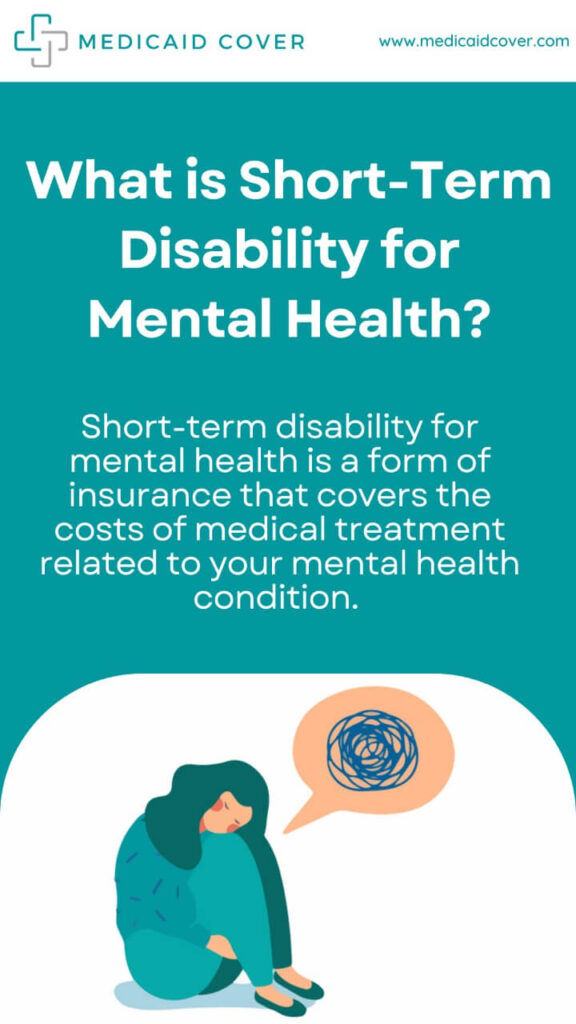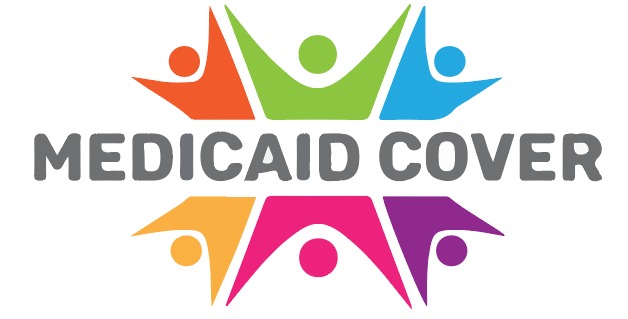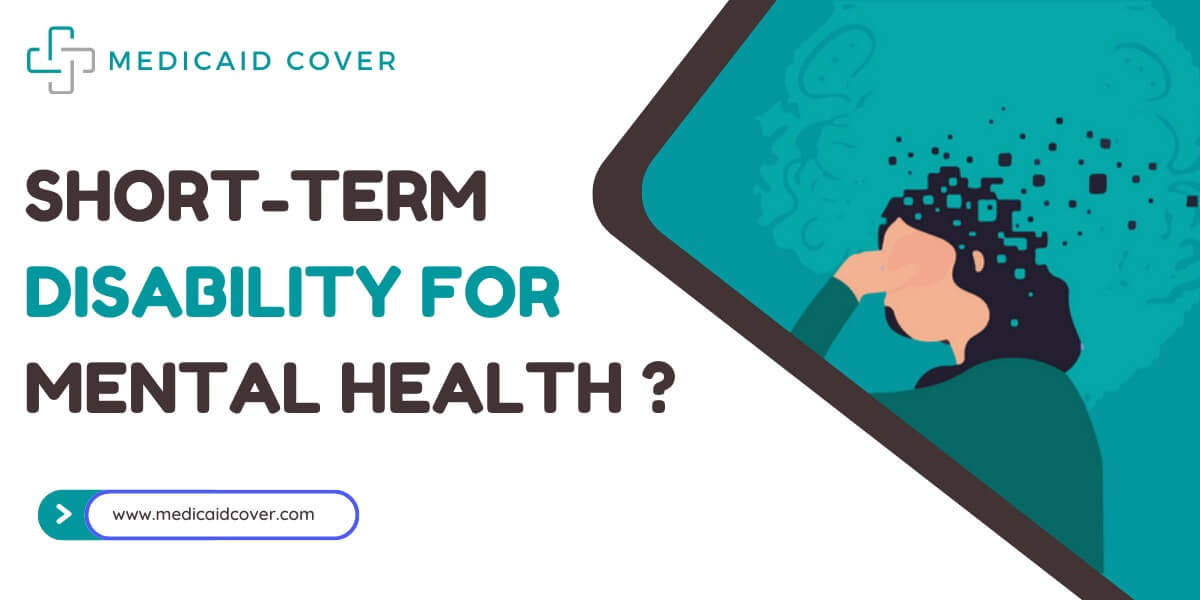Mental health issues can range from mild anxiety to severe depression. These conditions can be debilitating and can cause a person to miss work. That is why it is important to understand the benefits of short-term disability insurance when it comes to mental health issues.
Knowing your rights and entitlements when it comes to short-term disability for mental health can help you get the treatment and support you need during this challenging time.
Let’s dive into the details about short-term disability so you can make an informed decision about whether it’s right for you.
What Is Short-Term Disability For Mental Health?
Short-term disability for mental health is a form of insurance that covers the costs of medical treatment related to your mental health condition.

It can also provide financial support if you are unable to work due to your mental health condition. Depending on the policy, this may include both physical and psychological treatments such as counselling or medication.
How Does Mental Health Fit Into Short-Term Disability Coverage?
Mental health issues such as depression, anxiety, bipolar disorder, PTSD and more can qualify for short term disability for mental health coverage in some cases – although it’s important to note that each policy has its own set of rules and guidelines when it comes to mental health conditions.
Some policies may require proof from a doctor or other medical professional that the condition is severe enough to prevent work; others may require additional documentation such as therapy records or medication lists.
Talk with your insurer about what types of evidence they require before filing a claim related to mental health conditions. Lets talk more here for medical bill grants, how you can apply for it.
What Does Short-Term Disability Cover?
Short-term disability insurance typically covers up to around three months of income replacement in the event of an injury or illness.
The exact coverage varies depending on the policy, but it typically covers some or all of the following :-
- Doctors’ visits and hospital stays.
- Medication costs related to your illness or injury.
- Lost wages, including any bonus payments you may have received had you not been disabled.
- Expenses related to rehabilitation, such as physical therapy or occupational therapy.
- Expenses related to medical equipment, such as crutches and wheelchairs.
- Any other medical expenses related to your illness or injury that are not covered by another source, such as health insurance.
Additionally, some short term disability for mental health policies also provides additional coverage for mental health issues such as depression and anxiety. This can be especially beneficial for those dealing with mental health issues that prevent them from working.
Who Is Eligible For Short-Term Disability?
If you’re considering applying for short-term disability benefits, it’s important to know who qualifies and what the eligibility requirements are.
Short-term disability insurance is designed to provide income replacement when a person is temporarily disabled due to an illness or injury and cannot work. Let’s take a look at who is eligible for this type of coverage.
The eligibility requirements for short term disability for mental health vary by state and insurer, but generally speaking, anyone between the ages of 18 and 65 can apply for coverage.
In addition, applicants must be able to show that they have been employed in their current job for at least six months prior to applying.
People with pre-existing conditions may be denied coverage, as well as those with certain dangerous hobbies, such as rock climbing or skydiving.
-
Documentation Needed For Application
Once you determine that you meet your employer’s eligibility requirements, it will be important to gather the necessary documentation in order to complete your application.
Your employer should provide you with an application form as well as a list of documents required in order to submit your application.
You will likely need medical records from your doctor or psychologist verifying your diagnosis and any treatments or therapies prescribed; proof of income; and information about any other insurance policies you may have such as private health insurance or short term disability for mental health insurance.
All of these documents should be submitted along with your completed application form in order for it to be processed properly and quickly.
-
When Can I Start Receiving Benefits?
Typically you must wait a certain period of time before receiving benefits—usually it’s between 14 and 30 days after your disability begins.
Your insurer will usually pay benefits after that waiting period has ended; however, this could vary depending on your policy and circumstances.
Be sure to check with your insurer if you have any questions about your specific policy.
Frequently Asked Questions
What are the benefits of short term disability for mental health?
Some of the benefits may include :-
- Income replacement so that you can continue to pay your bills
- Continued health insurance coverage.
- Vacation and sick time payouts.
- Mental health care services.
Talk to your human resources department or insurance company to learn more about the specific benefits offered through your policy.
Does stress qualify short-term disability?
It depends. If a person’s stress is caused by an illness or injury covered under their short-term disability insurance policy, then the stress may qualify for benefits.
However, the policy must provide a clear definition of what constitutes an illness or injury covered by the policy and how it must be documented by a medical professional.
How long does short term disability for mental health last?
The duration of short term disability for mental health can vary depending on the insurance provider and plan. Generally, most plans offer coverage for up to 6 months.
Can I appeal if I am not eligible for short term disability for mental health?
Yes, you can appeal if you are not eligible for short term disability for mental health. Each state has different laws and regulations regarding the appeals process, so you should consult with a disability attorney to learn more about how to appeal your decision.
Can you go on short-term disability for anxiety?
The answer to this question depends on your situation, as short-term disability policies vary. Generally speaking, if you qualify for short-term disability, it is possible to receive benefits due to anxiety or other mental health conditions.
Conclusion :-
If you’re living with a mental health condition, understanding the benefits of short term disability for mental health can make all the difference when dealing with its impact on employment.
This type of insurance provides financial security during periods of illness or injury caused by mental health issues so that you can focus on getting better without having to worry about how you’ll make ends meet during that time.
Be sure to research what options are available in your area so that if needed, you can access these life-saving protections when they are needed most.

